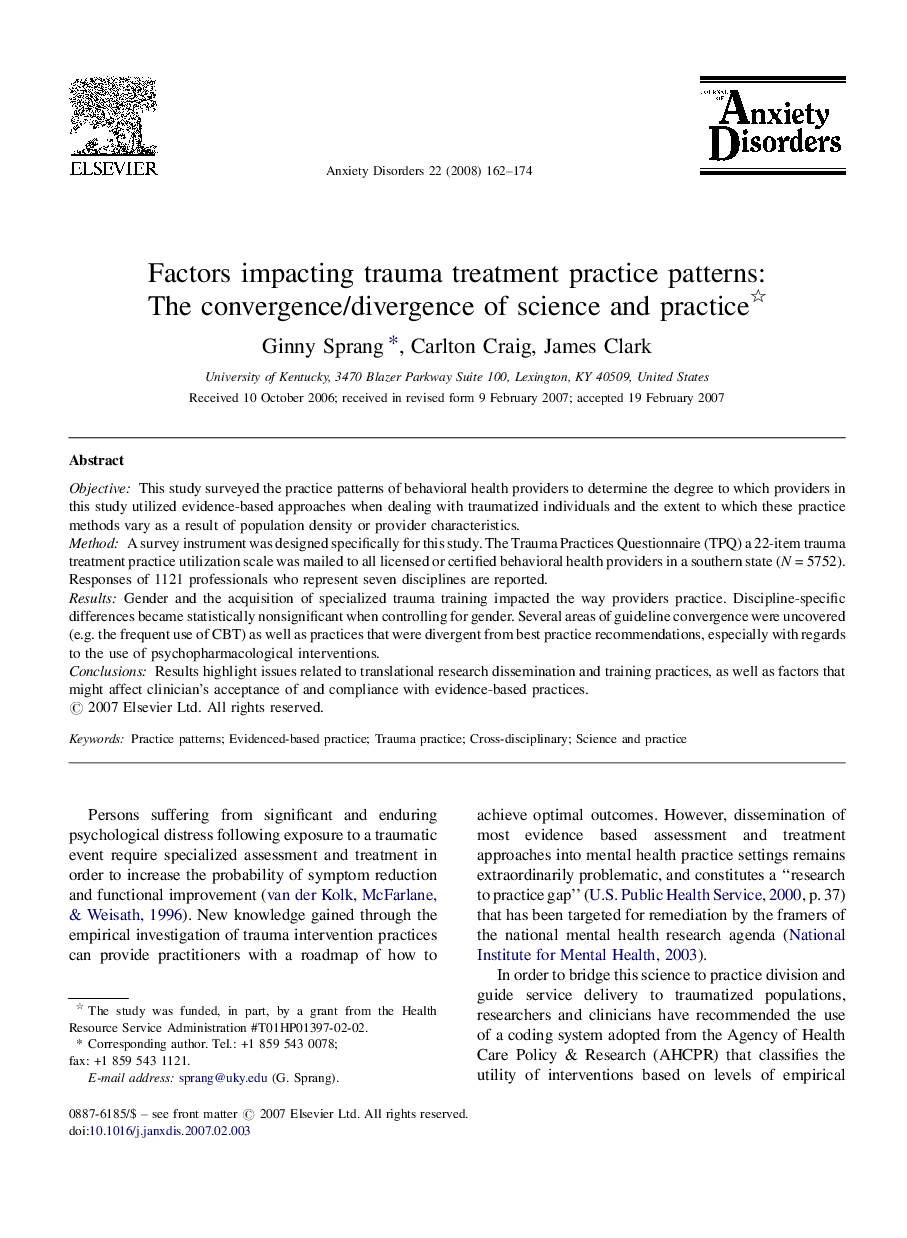| Article ID | Journal | Published Year | Pages | File Type |
|---|---|---|---|---|
| 909828 | Journal of Anxiety Disorders | 2008 | 13 Pages |
ObjectiveThis study surveyed the practice patterns of behavioral health providers to determine the degree to which providers in this study utilized evidence-based approaches when dealing with traumatized individuals and the extent to which these practice methods vary as a result of population density or provider characteristics.MethodA survey instrument was designed specifically for this study. The Trauma Practices Questionnaire (TPQ) a 22-item trauma treatment practice utilization scale was mailed to all licensed or certified behavioral health providers in a southern state (N = 5752). Responses of 1121 professionals who represent seven disciplines are reported.ResultsGender and the acquisition of specialized trauma training impacted the way providers practice. Discipline-specific differences became statistically nonsignificant when controlling for gender. Several areas of guideline convergence were uncovered (e.g. the frequent use of CBT) as well as practices that were divergent from best practice recommendations, especially with regards to the use of psychopharmacological interventions.ConclusionsResults highlight issues related to translational research dissemination and training practices, as well as factors that might affect clinician's acceptance of and compliance with evidence-based practices.
